Chapter 5: How to Conquer Civil Procedure on the California Bar Exam
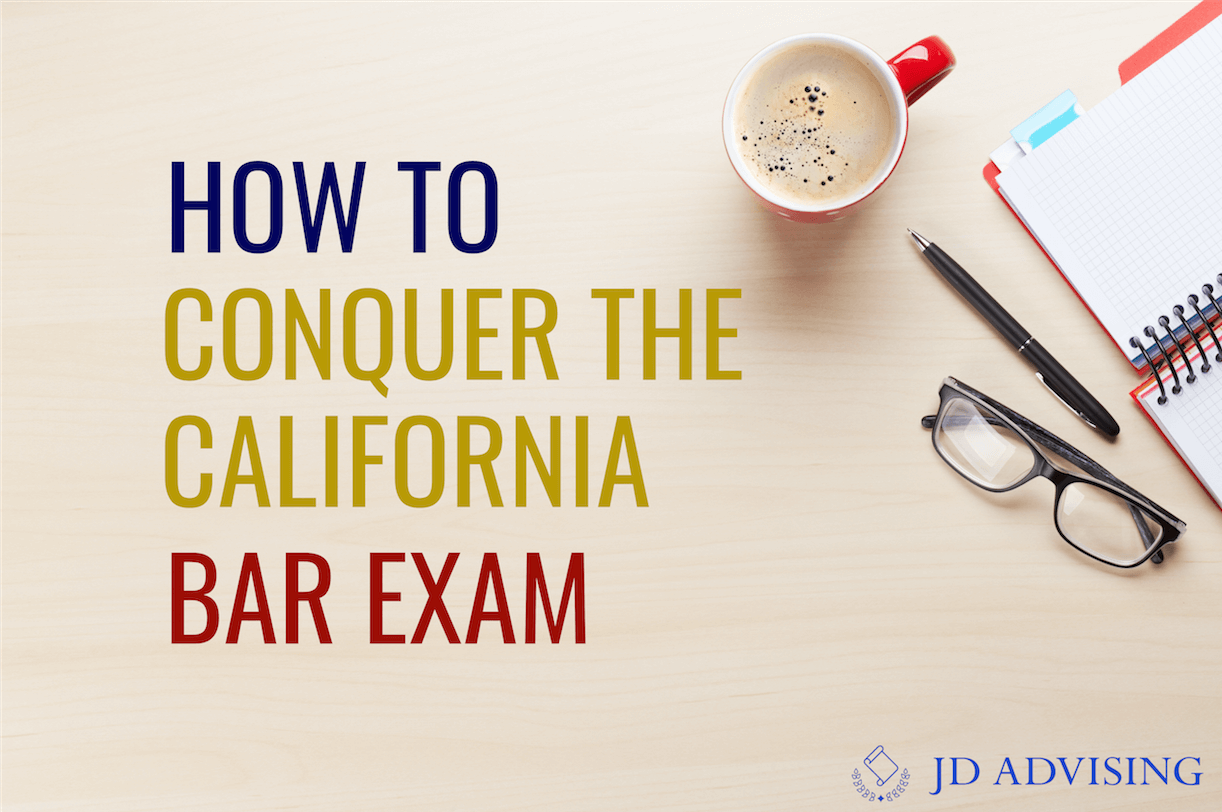 Civil Procedure on the California Bar Exam
Civil Procedure on the California Bar Exam
Civil Procedure is regularly tested on the California Bar Exam. The good news is that it is somewhat predictable in terms of how it is tested. Here, we tell you how to approach Civil Procedure on the essay portion of the California Bar Exam so that you maximize your points.
Civil Procedure on the California Bar Exam
1. First, learn and memorize the Federal Rules of Civil Procedure.
For Civil Procedure essays on the California Bar Exam, students are expected to know the California Code of Civil Procedure (CCCP) in addition to the Federal Rules of Civil Procedure (FRCP). This can be challenging for students because the CCCP is quite different from the FRCP. For example, a lot of the vocabulary is different between the two sets of rules.
However, California law hardly is ever tested on the essays. California law was tested on a July 2016 Civil Procedure essay. Additionally, there was a brief California law issue in a July 2009 essay when Civil Procedure was combined with Professional Responsibility. While the CCCP is not frequently tested, you still want to know it! There is information to suggest that the CCCP will be tested more frequently in the future (though this may or may not happen).
We recommend that you first learn and memorize the FRCP since this is the law most likely to appear on the essays. Additionally, you need to know the FRCP for the MBE.
Then, after you feel comfortable with the FRCP, work on learning some of the California distinctions from the CCCP. We recommend that you closely review the July 2016 California Bar Exam essay question and answer. The California law tested in that essay question could very well appear again on a future Civil Procedure essay question on the California Bar Exam.
2. Be aware of the highly tested issues.
The California Bar Exam essay portion tests certain Civil Procedure issues repeatedly. (We have a nice summary of these in our California Bar Exam One-Sheets.)
Some of the most frequently tested Civil Procedure issues on the essay portion of the California Bar Exam include:
- Personal jurisdiction: Personal jurisdiction is the power of a court over a particular person in a case. Personal jurisdiction arises from the Due Process Clause of the Fourteenth Amendment. When answering a personal jurisdiction question, discuss both the traditional bases for personal jurisdiction (general personal jurisdiction) and long-arm statute jurisdiction (specific personal jurisdiction). Although specific personal jurisdiction is more frequently tested on the California Bar Exam, giving an overview of both types of personal jurisdiction will make your answer appear more thorough. The traditional bases for personal jurisdiction are consent, presence, and domicile.
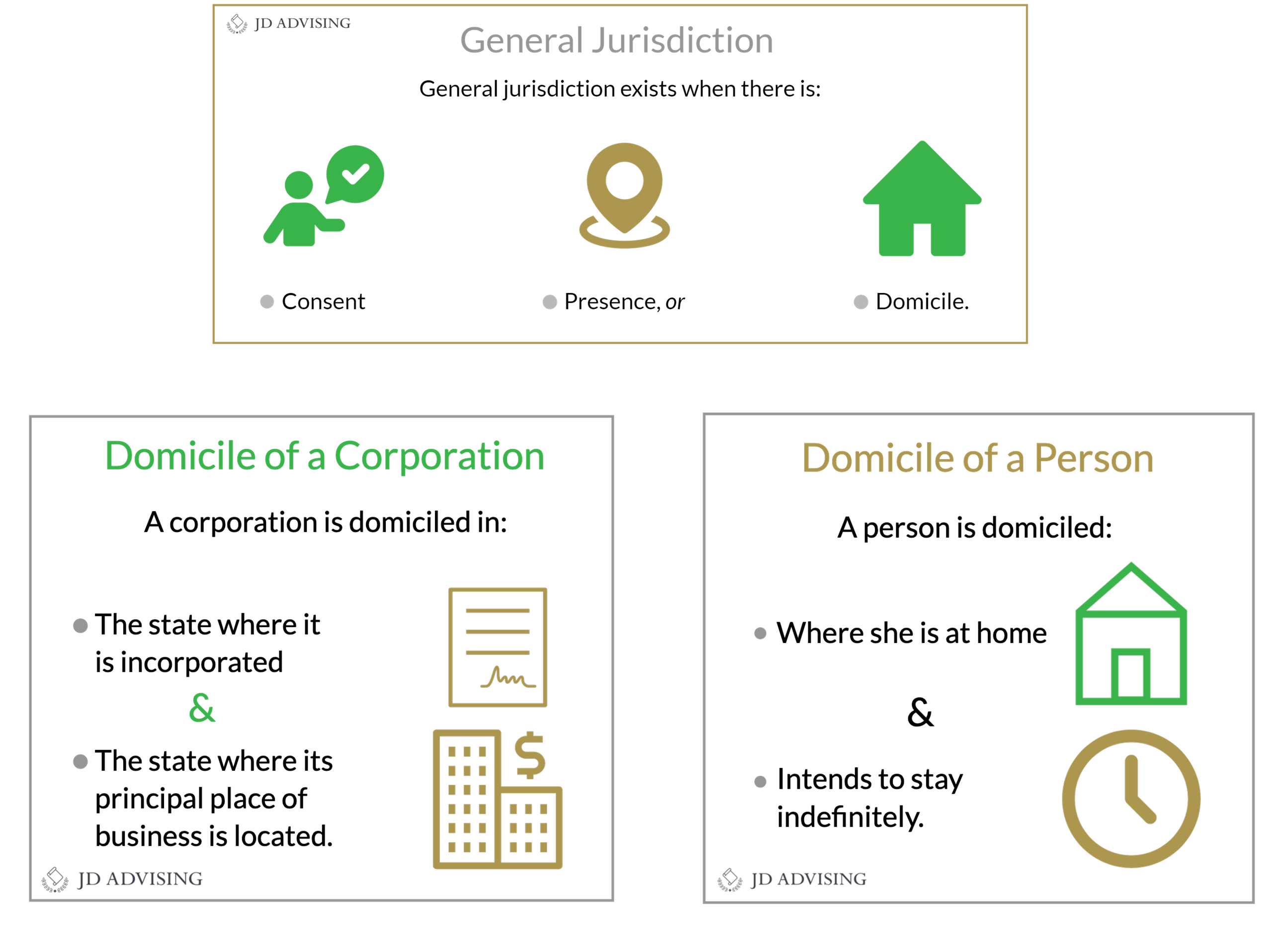
- For specific personal jurisdiction to be constitutional, the state constitution and the United States Constitution must grant jurisdiction. The California long-arm statute grants the same amount of jurisdiction as the U.S. Constitution. To satisfy the constitutional requirements for specific personal jurisdiction, the defendant must have engaged in such minimum contacts such that it would not offend traditional notions of fair play and substantial justice. To determine if there are minimum contacts, see if the defendant purposefully availed themselves of the benefits and protections of the state such that it was foreseeable that the defendant would be the subject of a claim in that state.
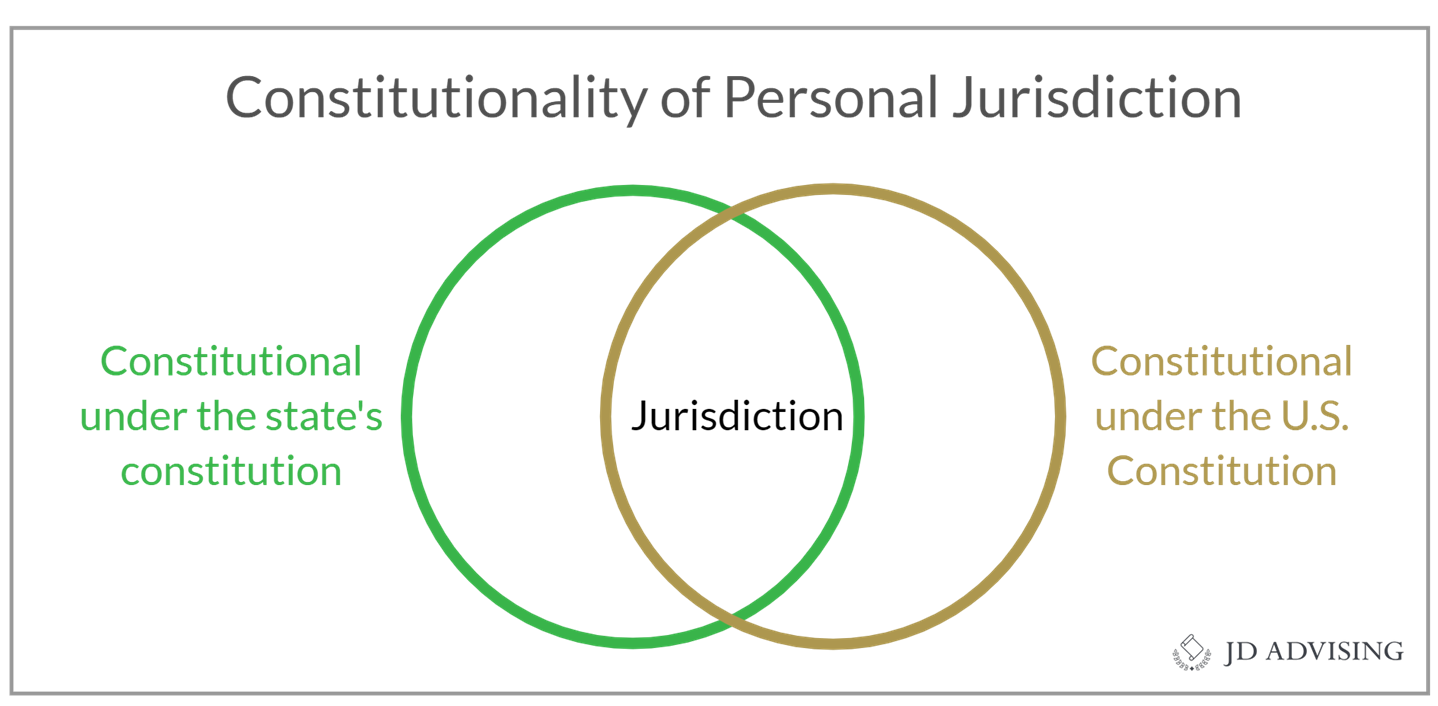
- Subject-matter jurisdiction: Subject-matter jurisdiction is the power of a court to hear a certain type of case. Although there are four types of subject matter jurisdiction, only federal question and diversity jurisdiction have been tested on the essay portion of the California Bar Exam. When answering a subject-matter jurisdiction essay question, discuss both federal question and diversity jurisdiction. Diversity jurisdiction is tested much more frequently than federal-question jurisdiction. Federal-question jurisdiction exists over cases that involve a claim that is either created by federal law or is created by state law but depends on a substantial federal question. The well-pleaded complaint rule states that the federal issue must appear on the face of the plaintiff’s complaint.
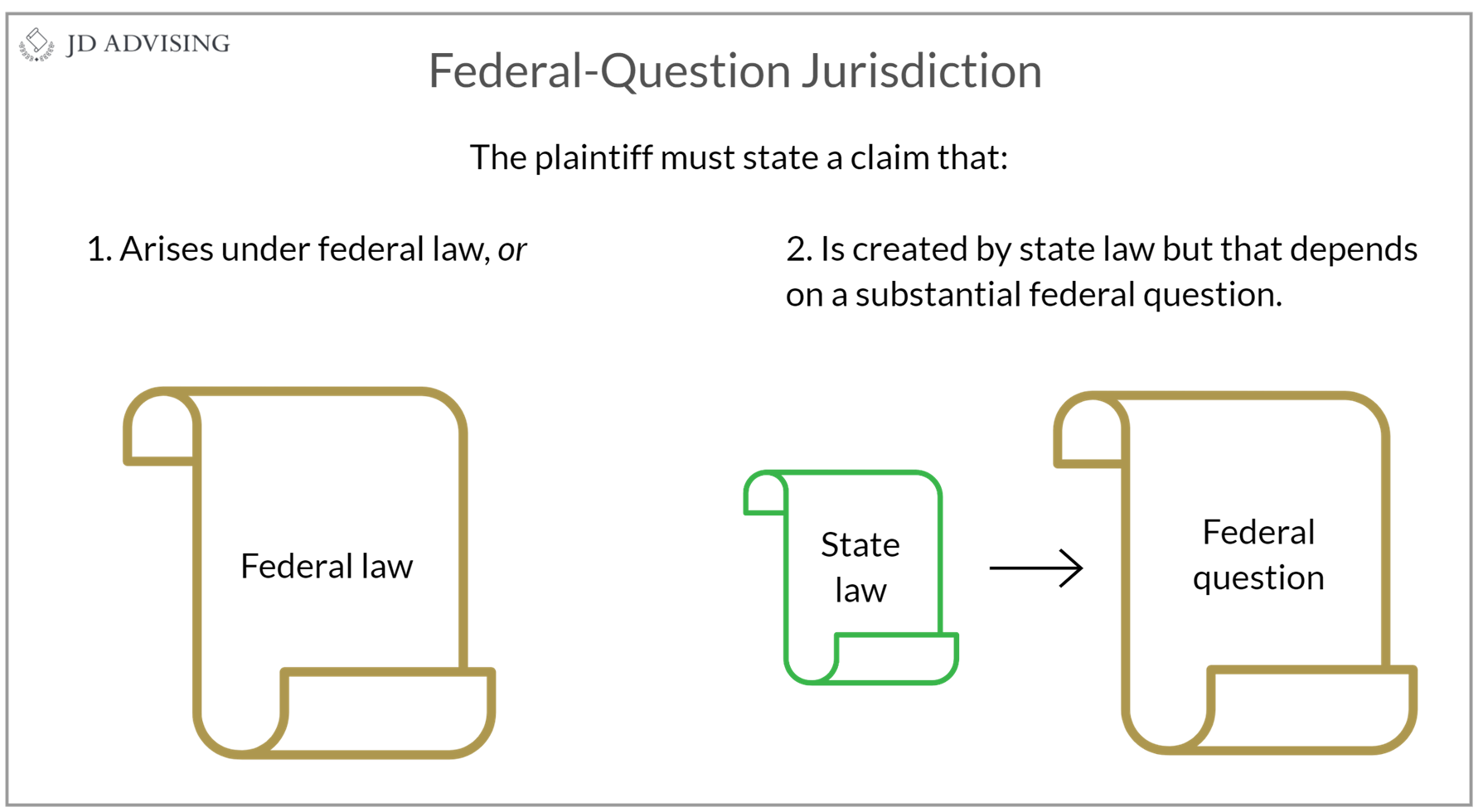
- Removal: Defendant (not plaintiffs!) may remove an action from state court to the federal court that geographically embraces the state court if the plaintiff could have initially brought the case in federal court.
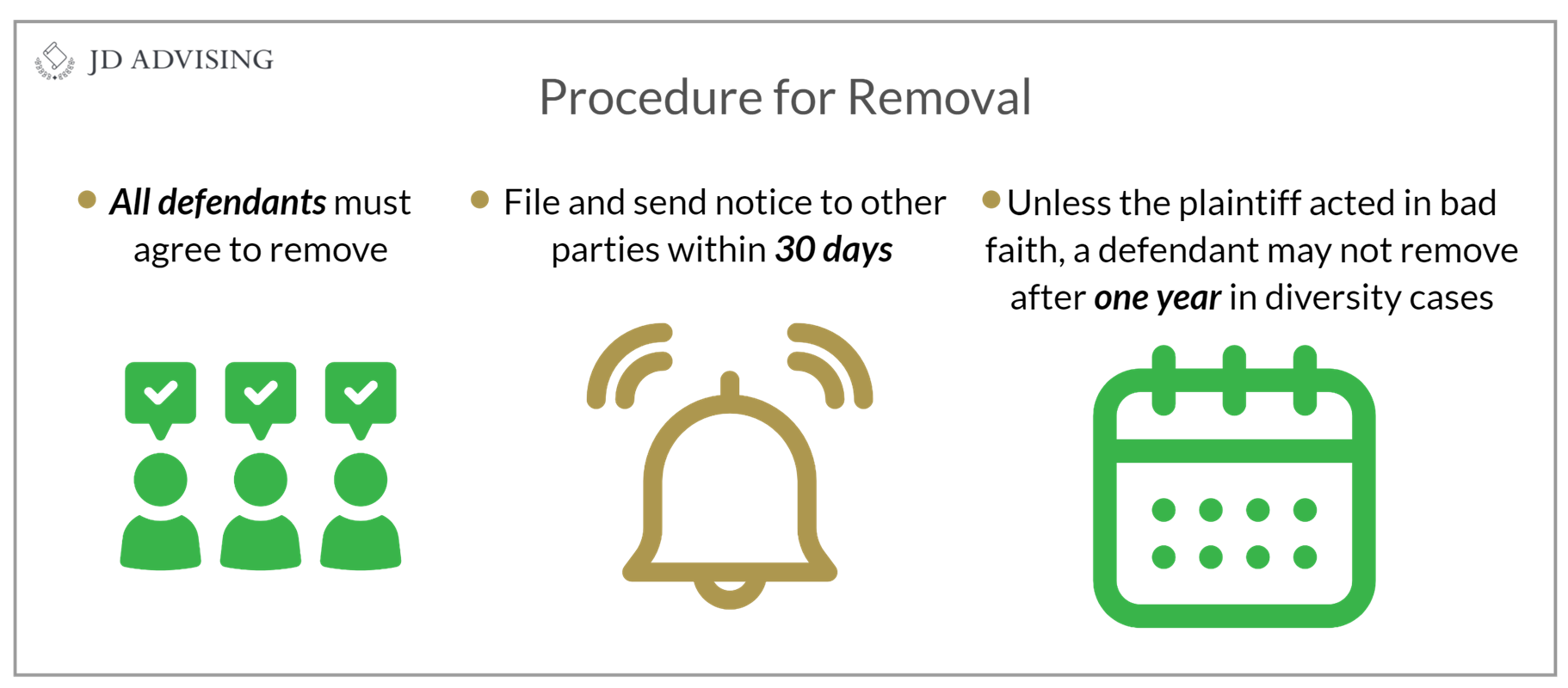
- Erie doctrine: On the essay portion of the California Bar Exam, the Erie doctrine has been tested in the context of the right to a trial by jury. Federal law will apply because an issue concerning the right to a trial by jury is considered procedural.
- Claim and issue preclusion: Claim preclusion prevents a plaintiff from retrying the same cause of action in a later lawsuit where there has already been a final judgment on the merits. Issue preclusion prevents issues that were actually litigated, decided, and essential to the judgment in a previous action from being litigated again.
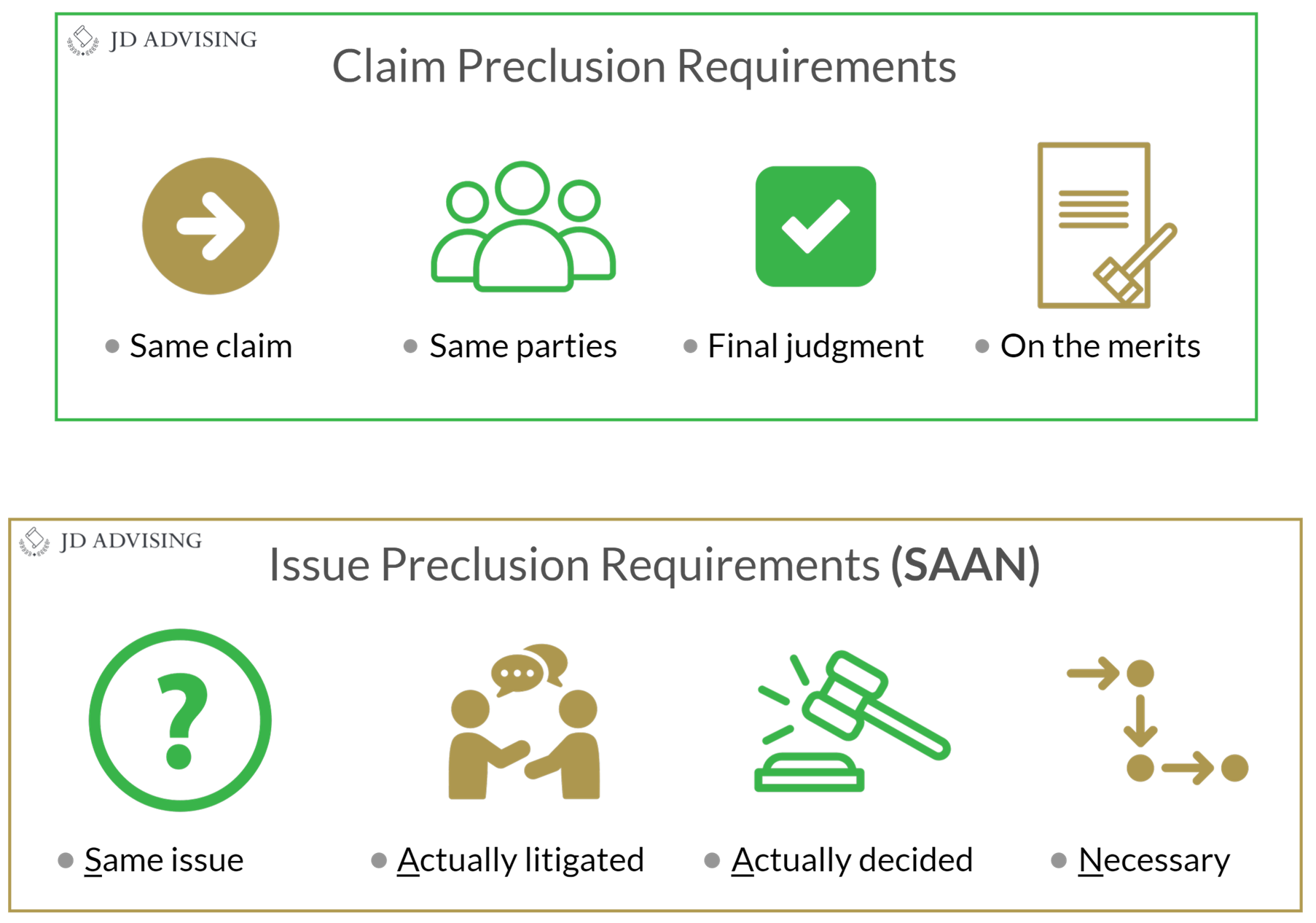
3. Practice!
The best way to build confidence in Civil Procedure essays is to practice answering essay questions. This will get you acquainted with the highly tested issues. Additionally, you will be able to see how these issues are tested on the exam.
Here are a few essay questions with student answers that we recommend you practice to get exposed to some highly tested topics in Civil Procedure:
- February 2019 Civil Procedure essay (combined with Evidence): this essay applies federal law and covers subject-matter jurisdiction (see essay question # 4 on the exam).
- July 2017 Civil Procedure essay: this essay applies federal law and covers joinder of claims, pleadings, subject-matter jurisdiction, and the Erie doctrine (see essay # 4 on the exam).
- July 2016 Civil Procedure essay: this essay applies California and federal law and covers subject-matter jurisdiction, personal jurisdiction, and venue (see essay question # 1 on the exam).
- July 2015 Civil Procedure essay: this essay applies federal law and covers subject-matter jurisdiction, personal jurisdiction, claim preclusion, and issue preclusion (see essay # 1 on the exam).
- February 2015 Civil Procedure essay: this essay applies federal law and covers discovery, the Erie doctrine, and jury demands (see essay #3 on the exam).
Practicing Civil Procedure essays will be twice as helpful to you because Civil Procedure also is an MBE subject. Thus, working on the Civil Procedure essays will help you with Civil Procedure MBE questions as well!
Go to the next topic, Chapter 6: Community Property.
Looking to Pass the California Bar Exam?
📚 Ready to Conquer the California Bar Exam?
- Free Bar Exam Resource Center: Your gateway to handpicked guides, webinars, and articles.
- Expert-Written Bar Exam Guides: Get a CA bar exam essay guide, strategies for passing, and advice on choosing the ideal tutor.
Top Resources Recommended by our Students:
- Bar Exam Outlines: Our comprehensive and condensed bar exam outlines present key information in an organized, easy-to-digest layout.
- California One-Sheets and Baby Bar One-Sheets: Consistently 5-star rated by our students.
- California Essay Exam Mastery Class: Target the most tested and challenging California bar segments.
- California and Baby Bar Exam Private Tutoring: Get personalized tutoring by bar exam experts.
- On Demand Bar Exam Course: 5-star rated for your comprehensive preparation. Free course preview available!
- Real MBE Questions: Perfect your practice with the best of practice materials.
🔥 NEW! Check out our Repeat Taker Bar Exam Course and our unrivaled platinum Guarantee Pass Program!





Leave a Reply
Want to join the discussion?Feel free to contribute!